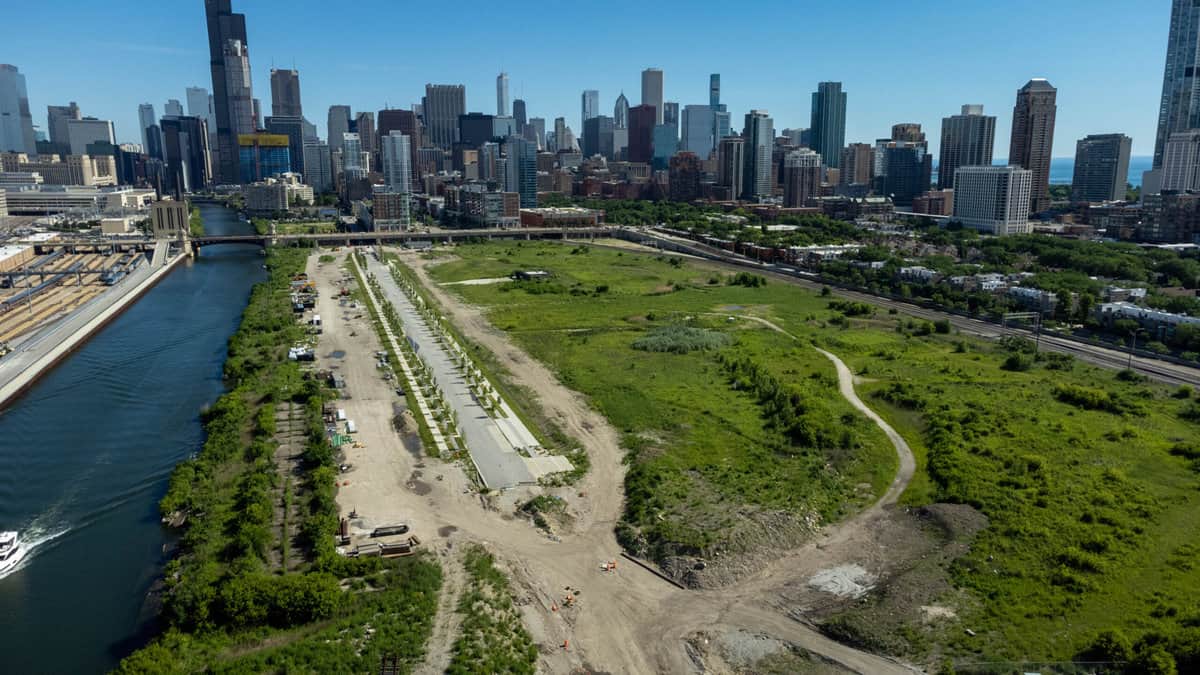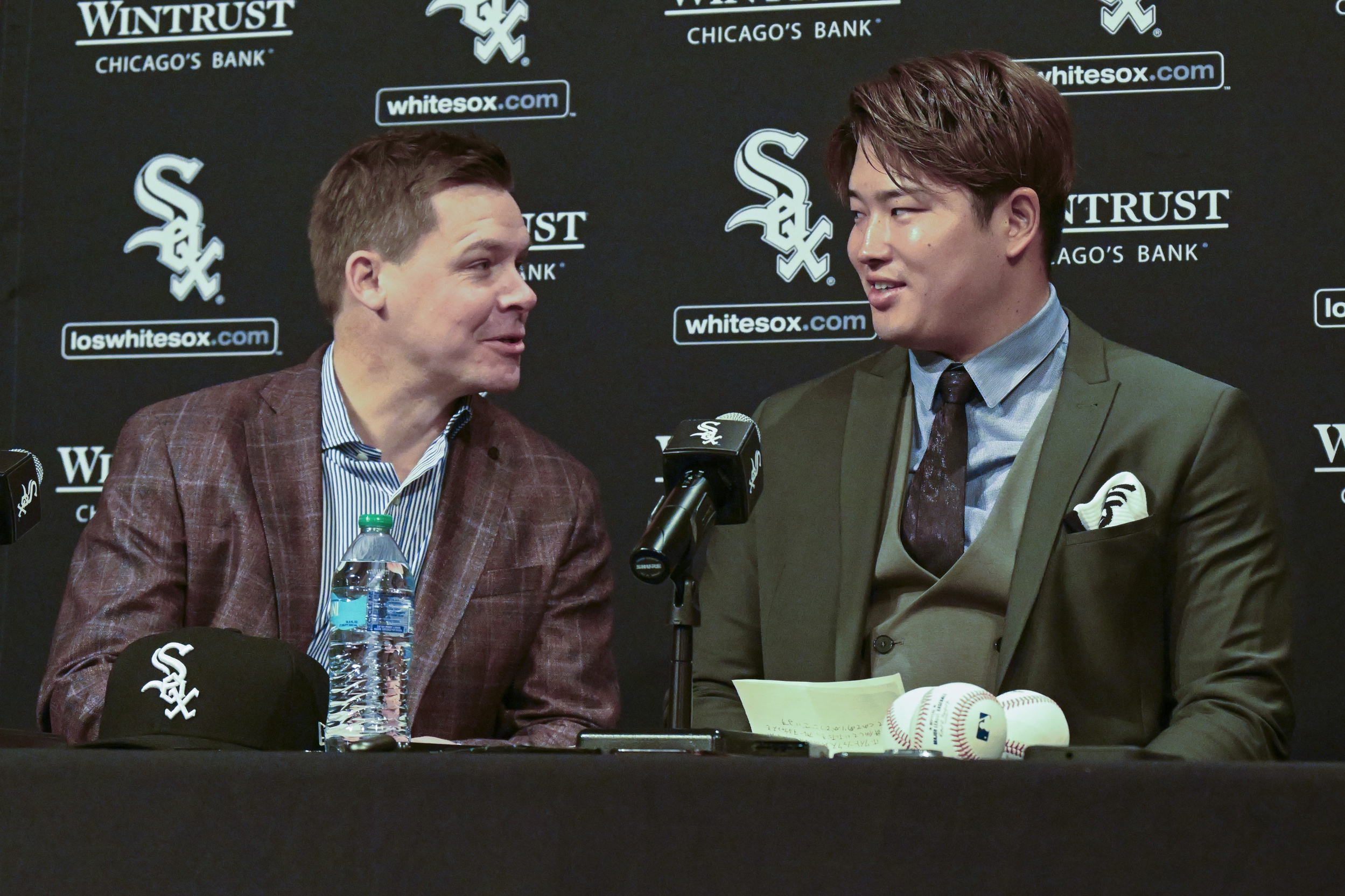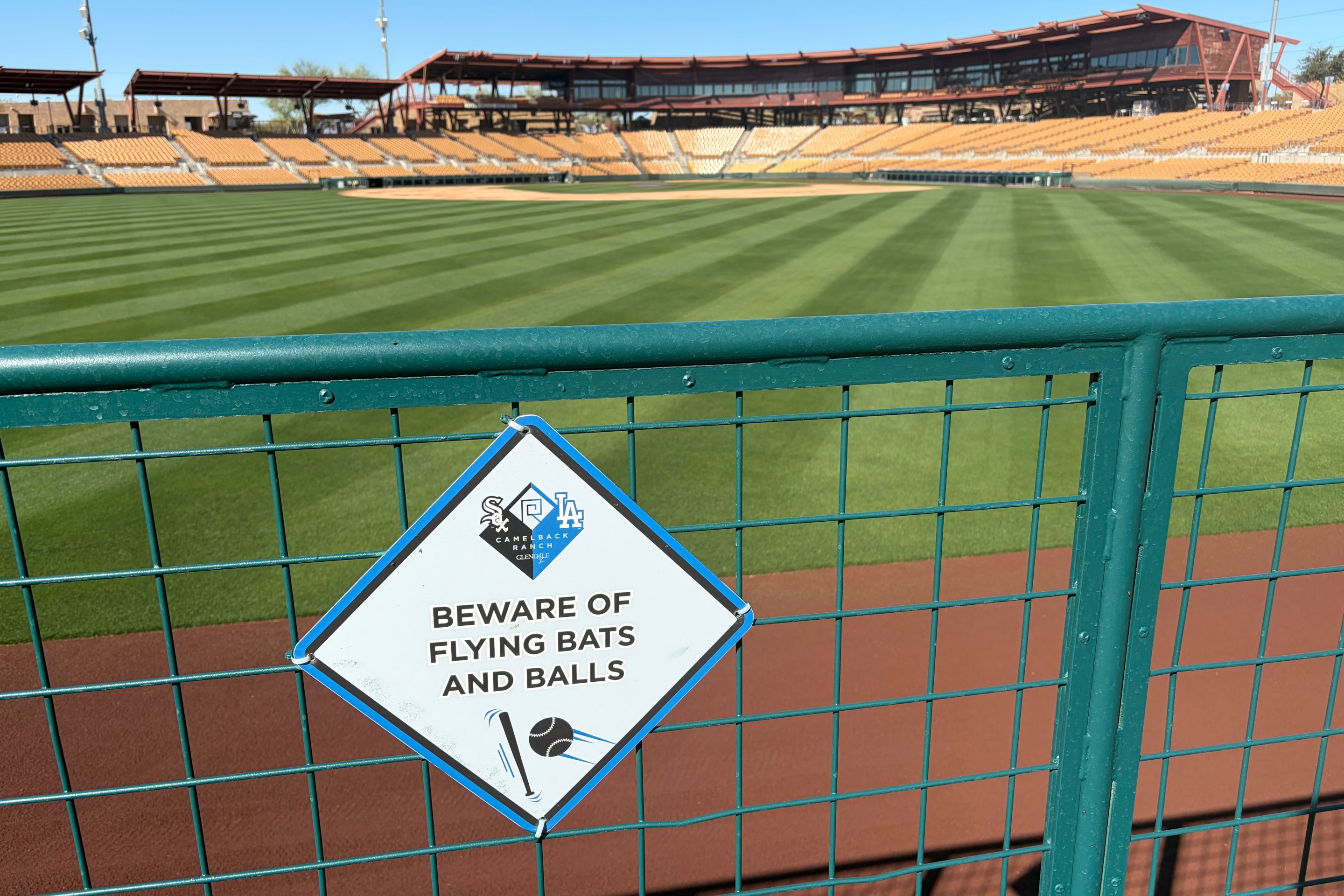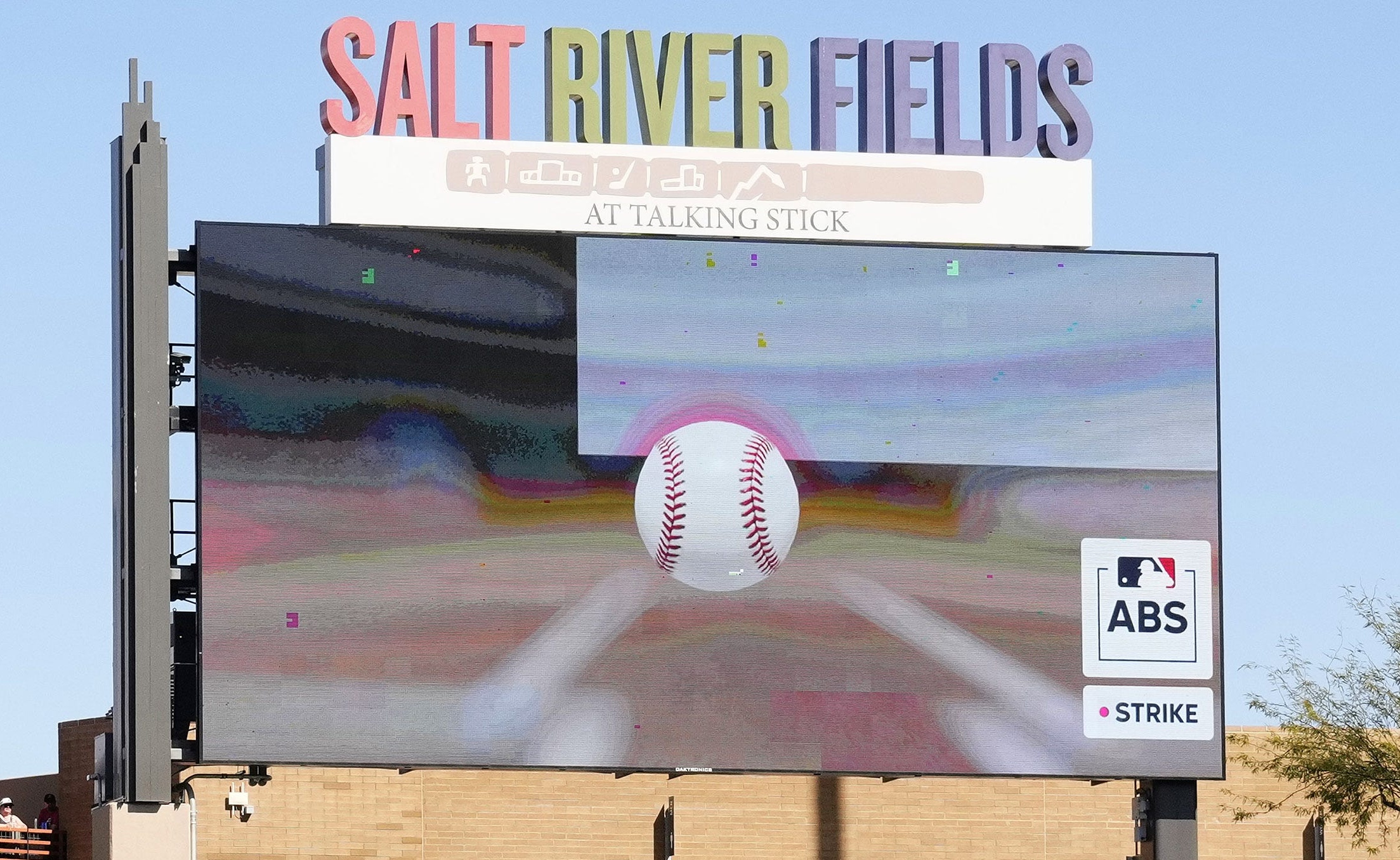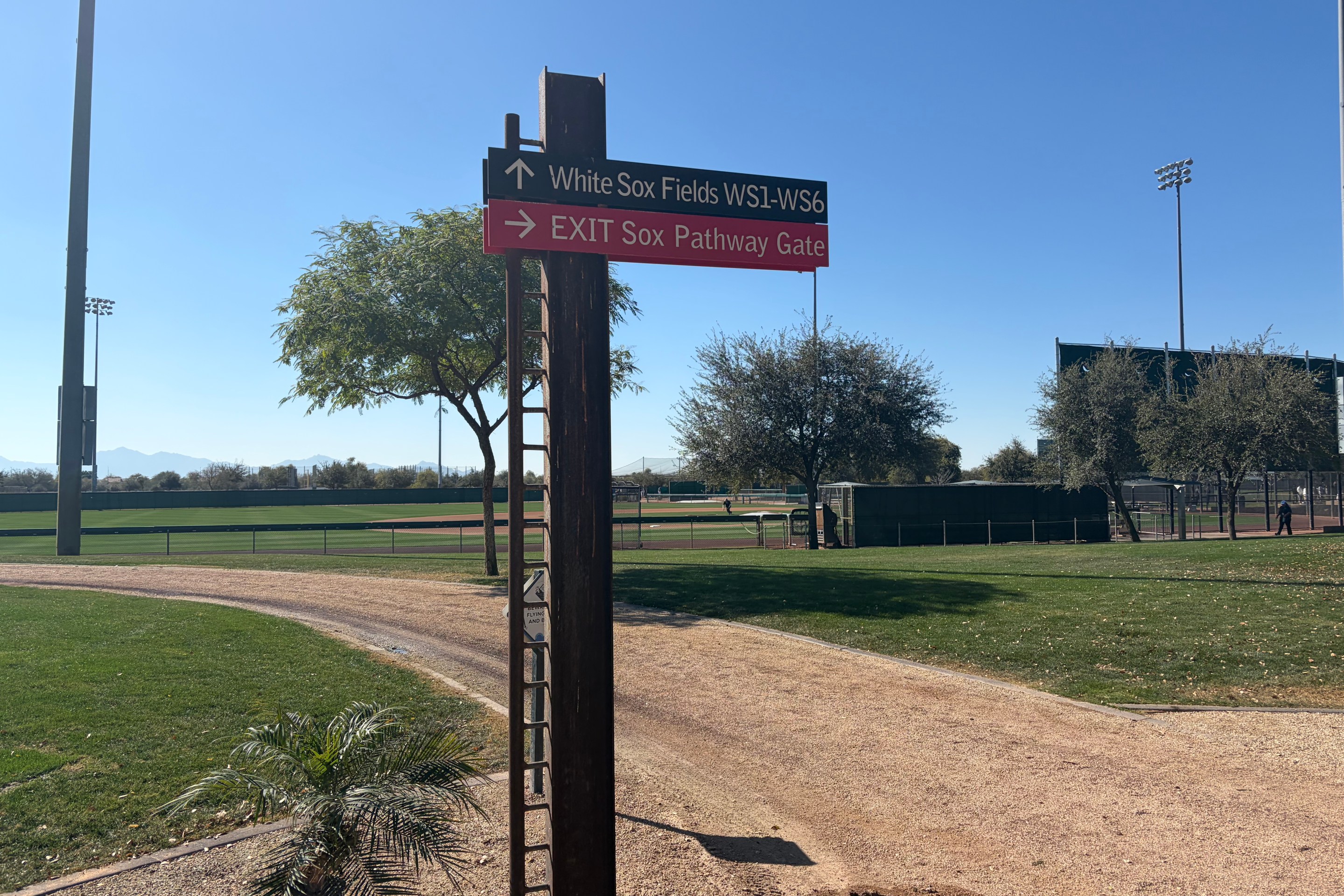There are precious few news drops about the White Sox that generate genuine excitement and intrigue, but the Chicago Sun-Times delivered one of them on Wednesday night.
A three-bylined story from Fran Spielman, Tim Novan and David Roeder said the White Sox are engaged in "serious" talks to build a new ballpark in the South Loop on the site known as "The 78."
The White Sox are negotiating with developer Related Midwest about the possibility of building a new ballpark on the South Loop parcel known as “the 78.”
Sources familiar with the talks, all of whom asked to remain anonymous, described the negotiations for a baseball-only stadium as “serious.”
The plot, which spans from Roosevelt Road to 16th Street north to south, and the Chicago River to South Clark Street east to West, checks off so many boxes for a modern ballpark at first glance. One can imagine the Chicago skyline as a backdrop, easy public transportation access with the Red, Green and Orange lines, and maybe some water taxi activity as well. The more ways to get to the park on public transportation -- and fans flying in to Midway could take the train straight there, which is an experience I enjoyed in Minneapolis with Target Field -- the fewer parking spots that are required, which creates room for the kind of multifaceted real estate development baseball team owners covet this day and age.
The question is, if the land is one of the few undeveloped large tracts of land in the Loop, why hasn't it already been developed? A Chicago Magazine story from August 2013 explains some of the challenges.
After the crooked river canal was filled and what is now known as the Rezko property was born, the land was used as a train yard and entry point for Grand Central until the 1970’s. When the yard was demolished, no one bothered to hook up sewer or water pipes or run electricity to the property, or even build streets or sidewalks to the lot. Located 30 feet below Roosevelt Road, the property is practically inaccessible from three sides—and, if anyone wanted to build on it, they’d first have to invest significantly in preliminary infrastructure as well as clean up all the garbage and chemicals in the soil. This is partially why Rezko failed to do anything with the land—besides having to deal instead with his money laundering and fraud convictions, of course.
But Jerry Reinsdorf had flirted with the idea of moving to the South Loop before, with Harold Washington offering some land just across the street from The 78. As Rob noted in his terrific post at South Side Sox:
In 1985 the corner of Clark and Roosevelt was nothing more than weeds and railroad tracks that had been abandoned by the Rock Island five years before. The city needed to build the pipes, sewer lines, power lines, roads, bridges, and subway stops that would serve the new stadium. Reinsdorf wanted to keep the money from parking and concessions. He also didn't want to pay rent on the new facility. City Hall expected the Sox to foot some of the bill. That was a non-starter as far as the Sox were concerned. By 1986, the team was flirting with west suburban Addison. Reinsdorf's real estate company already owned a plot of land at Lake and Swift roads. I-290 was right next to the proposed stadium site, and Governor Jim Thompson was willing to give them an off-ramp.
The people of Addison put it to a vote. The referendum was defeated in November of 1986. But Harold Washington wasn't through. In early 1987 he cut a deal that would keep the Sox within the city of Chicago. The state would create a board that would be responsible for building and maintaining a new Sox Park that would be located at 35th and Shields. Even though the South Loop would have been a fantastic site for a stadium, the existing Comiskey Park infrastructure could be retrofitted to serve the new facility across the street.
While the White Sox have benefited financially from the sweetheart deal with the state, so many of the choices made for New Comiskey Park aged poorly, from the orientation of the stadium, the steep pitch of the upper deck, and the sea of parking lots surrounding it. The team's attempt to develop attractions independent of the ballpark are limited to the Chicago Sports Depot and ChiSox Bar and Grill, and the result is a pretty accurate physical manifestation of their general isolation in the Chicago sports landscape.
Given Reinsdorf's history, it's hard to imagine the Sox would be interested in paying for much of a site at The 78. However, if the city is willing to pay for some of the development in order to have a project that would sustain all the utilities necessary for developing the entire area, then perhaps it'd entice Reinsdorf to learn from past mistakes. (Not to mention a new, enviable location for the White Sox could make the team far more attractive to prospective buyers.)
Too much is unknown for me to raise my hopes yet, and the Bears are a cautionary tale with their acquisition of the Arlington Race Track site, with nothing coming of it since. Still, it provides a more concrete example of why the threat of a move to Nashville feels toothless to me. The thought of a well-executed stadium plan in the South Loop, with the Chicago skyline behind it and multiple forms of public transportation connecting it to the rest of the city and suburbs, would instantly make relocation to a way smaller, untested market as laughable as it should've been all along.
